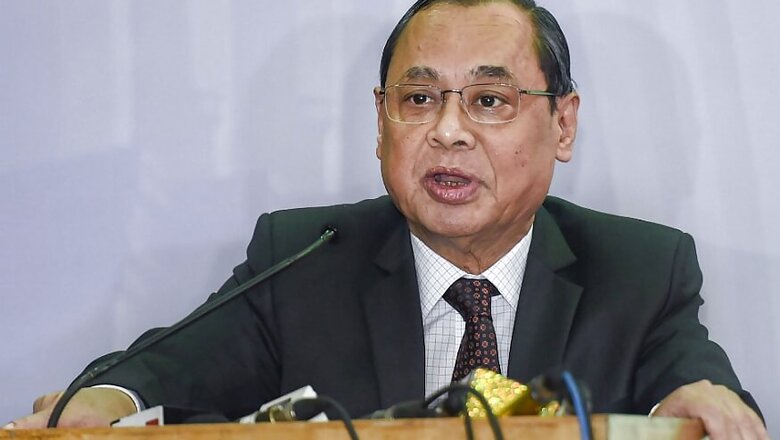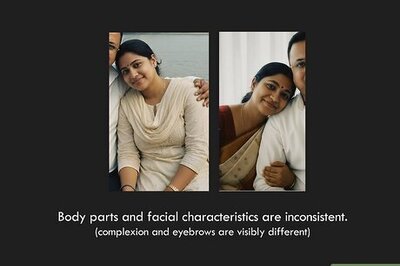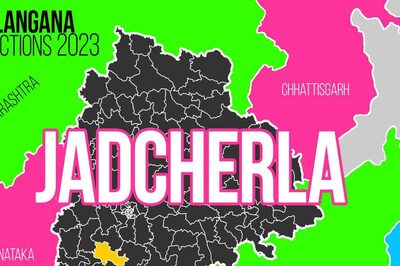
views
New Delhi: Justice Ranjan Gogoi seems to have a knack for being part of unprecedented events in India's judicial developments.
It was an unparalleled event in January 2018 when he addressed a press conference with three other most senior judges of the Supreme Court to "discharge his debt to the nation" by citing litany of problems that they said were afflicting the country’s highest court.
On Saturday, Justice Gogoi's presence on a three-judge bench marked yet another unprecedented development when despite his presence on the bench, the order was passed and signed only by the two other judges.
The bench was hurriedly called upon to sit on a non-working day in the wake of allegations of sexual harassment charges against the CJI by a former court staff.
The notice on Saturday morning specified that it is going to be a bench comprising three judges, including the CJI who will head the bench.
The proceedings spanned over 30 minutes, witnessing Justice Gogoi refuting all the charges and expressing his anguish at the attack on his reputation as he also described this as a serious threat to independence of judiciary.
He also said that the sexual harassment complaint will not be examined by himself, besides the fact that Justice Arun Mishra, the other senior judge on this bench, will pass the order.
And when the judicial order was finally out, it was endorsed and passed by Justices Mishra and Sanjiv Khanna.
This course of action, however, is certainly out of the ordinary.
The normal practice is that if a judge recuses from a hearing, he or she doesn't comment on the merit of the matter before him or her.
Judicial propriety demands a judge to distance himself from the controversy in question so that the other judges are in a position to adjudicate the subject matter uninfluenced.
If a judge takes up a matter, comments upon it and then leaves it to the fellow judges on the bench to issue the order, it runs the risk of being viewed as partisan.
There will always be questions that the judge had a personal interest in the matter and thus, it was required on his part to stay away as a matter of judicial ethics.
Justice Gogoi might have felt his honour attacked but the question looms large if it was proper for him to use the judicial forum of the Supreme Court to refute the personal charges.
And when he admittedly had decided to recuse from the controversy, was it not more proper on his part to have not made observations on the matter?
If he did sit on the bench on Saturday for the entire time, how can the order show the names of only two other judges?
Judges do not talk to the media, and therefore, the judges' press conference in January 2018 had attracted much attention.
The Supreme Court proceedings on Saturday also appeared to be a public address by the CJI from Court No.1. This exercise is due to give rise to some more questions undoubtedly.




















Comments
0 comment